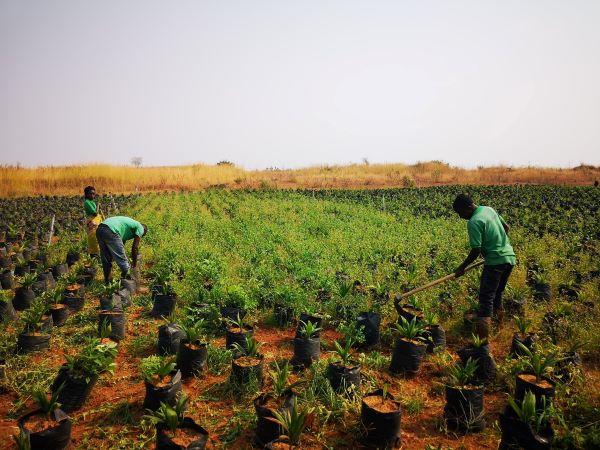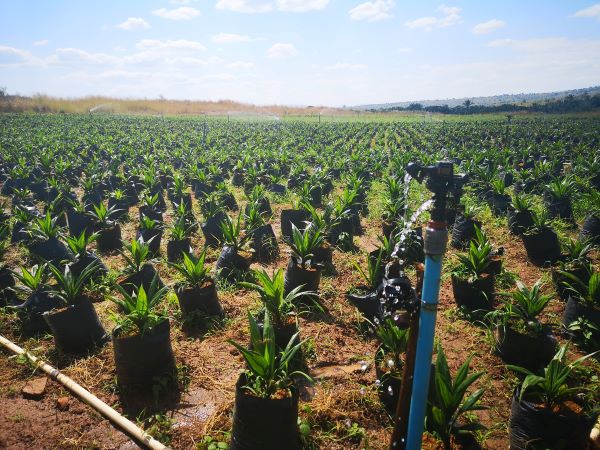Tanzanian research institutes have discovered new high yielding palm oil seeds that is set to boost the cultivation of the trees and production of the edible oil in the country.
The new variety of the palm oil seeds called Terena has gone through trials in some of the cultivation areas in the country such as Kigoma, Kagera, Tabora and Coastal regions and has shown good results.
Announcing the good news during a swearing in of state leaders yesterday in Dodoma, Tanzanian premier Kassim Majaliwa said that the discovery is a great step made by the research institutions in the recent past for the agricultural sector.
“The government has been strategizing with the view to increasing local production of palm oil seeds so as to reduce dependence on importation and end price fluctuations hence this discovery is a big breakthrough for the country,” said Majaliwa.
He has also urged Small Industries Development Organisations (SIDOs) to continue developing good and simple palm oil milling technologies, which can enable Tanzanians to produce more and better oil in the country.
Characteristics of Terena palm oil seeds variety
According to Smallholder Oil Palm Handbook Module1, in oil palm, the best yields are produced by hybrids like Terena , a cross between two different types of parents namely dura and pisifera palms.
The mother palm hybrid dura fruits have a thick shell while the father palm pisifera fruits have no shell at all. A cross between the two results into hybrid tenera fruits with a thin shell.
Terena palms produce up to 30 percent more oil than their parents and their fruits have brown/black fibres in the outer covering.

Government input
In a move to realise its target of producing 700,000 tonnes of edible oil a year, Tanzanian government instructed Agriculture Seeds Agency (ASA) to produce 15,000 tonnes of quality seeds for distribution to farmers in various regions by 2025.
‘We have a strategy to increase the size of land used for seeds multiplication from 15,000 hectares to 250,000 hectares in order to increase the quantity of seeds produced annually,” said Anthony Mavunde, Tanzania’s Deputy Minister for Agriculture.
He said the government increased the ministry’s budget from Sh294 billion to Sh751 billion in the 2022/23, something that will enable the agency to meet its seeds multiplication target of 10 percent growth reaching 2030.
The major crops for edible oil production in Tanzania are sunflower, palm oil, groundnuts, sesame, soya beans and cotton.
Protecting smallholders
Mr. Majaliwa also instructed commissioners in the oils production regions to ensure that they introduce standard palm oil measuring scales instead of local containers known as Bidoo, designed to exploit smallholder farmers.
“Citizens should not be exploited by Bidoo measuring units which are not regulated by the law and a buyer using such measures should be reported and action taken,” he said.
Farmers have been exploited a lot through the use of Bidoo measuring units, especially in cases where buyers enlarge a 20 litres container using hot water to increase its capacity to 25 litres and end up paying the price of 20 litres.
Edible Oil production in Tanazania
Tanzania produces 205,000 tonnes of cooking oil a year through oil seeds against a demand of 570,000 tonnes.
The deficit is imported from Malaysia, India, Singapore and Indonesia at a cost of $204.7 million per year. Shortage of edible oil has pushed retail prices from $1.3 to $2.8 per litre.









[…] Credit: Source link […]
Comments are closed.